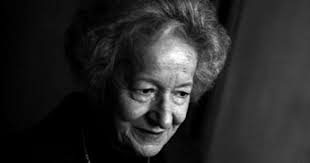Wislawa Szymborska
(Wislawa Szymborska is perhaps Poland’s most famous woman writer. She was awarded the Nobel Prize for literature in 1996.)
We are children of our age,
it’s a political age.
All day long, all through the night,
all affairs–yours, ours, theirs–
are political affairs.
Whether you like it or not,
your genes have a political past,
your skin, a political cast,
your eyes, a political slant.
Whatever you say reverberates,
whatever you don’t say speaks for itself.
So either way you’re talking politics.
Even when you take to the woods,
you’re taking political steps
on political grounds.
Apolitical poems are also political,
and above us shines a moon
no longer purely lunar.
To be or not to be, that is the question.
And though it troubles the digestion
it’s a question, as always, of politics.
To acquire a political meaning
you don’t even have to be human.
Raw material will do,
or protein feed, or crude oil,
or a conference table whose shape
was quarreled over for months;
Should we arbitrate life and death
at a round table or a square one?
Meanwhile, people perished,
animals died,
houses burned,
and the fields ran wild
just as in times immemorial
and less political.




